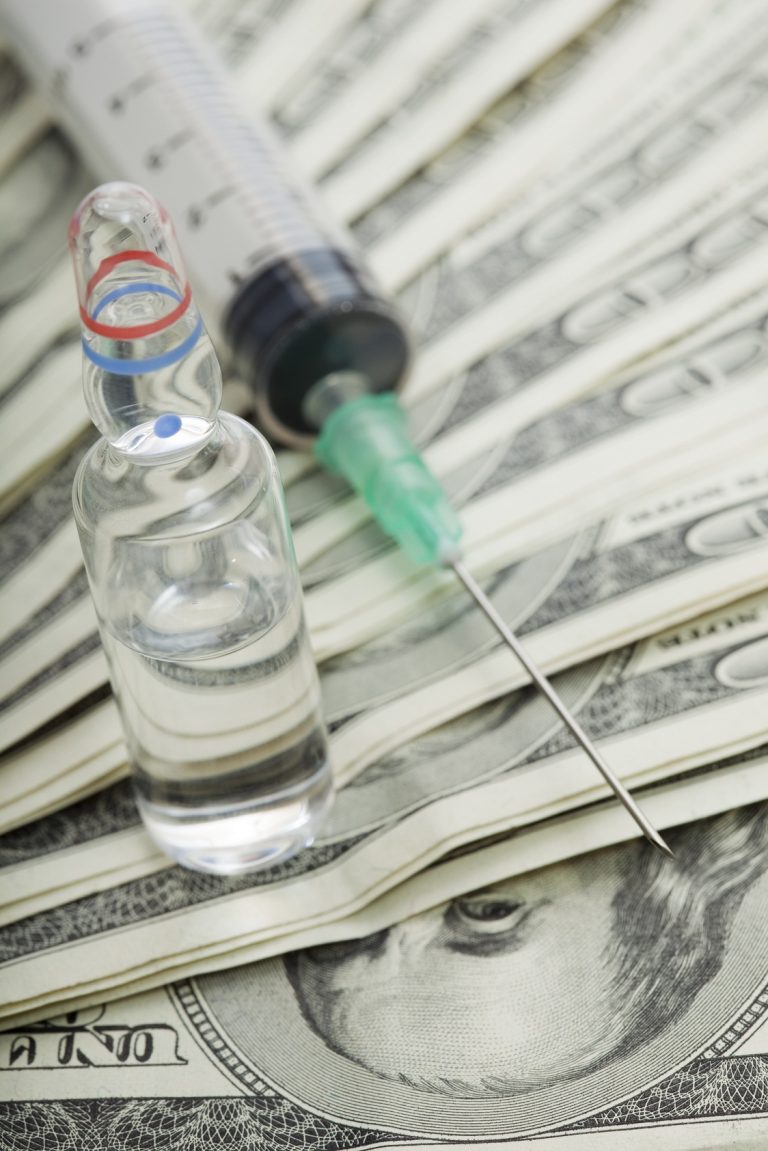- Recent research on a new heroin vaccine was found to be effective in blocking the “high” in non-human primates.
- The vaccine is ready to be tested in humans; however, there has been a delay in the clinical trials process.
- There has been speculation that pharmaceutical companies have shown no interest in sponsoring human clinical trials because the vaccine is not expected to yield big profits.
In the wake of the widely reported opioid addiction crisis in the United States, there has been a significant amount of speculation and discussion in the media about drug addiction vaccines, particularly for heroin. The Vaccine Reaction has been tracking this issue for several years.1 2 3 Recently, an experimental heroin addiction vaccine has reportedly been successful in animal trials; however, there is a delay in conducting clinical trials in human beings.
Human Clinical Trials of Heroin Addiction Vaccine Hit a Roadblock
In June 2017, the Scripps Research Institute (TSRI) completed pre-clinical testing of a vaccine to block the “high” effect stimulated by heroin. According to TSRI, it is the first vaccine against an opioid to pass this stage of pre-clinical testing.4
The vaccine is designed to fool the immune system into reacting to heroin as if it were a microbe, a pathogen causing an infectious disease.3 The immune system mounts an inflammatory response and triggers the production of antibodies to fight the heroin molecules and keep them from reaching the brain, which prevents the euphoric-like feeling caused by heroin.5
Scientists believe that the vaccine shows promise in helping to combat heroin addiction. Kim Janda, PhD, professor of chemistry and a member of the Skagg’s Institute for Chemical Biology at TSRI who has been working on the experimental heroin addiction vaccine for more than eight years states,”To put it simply, vaccines have saved more lives in the last 50 years than any other therapeutic—period.”6
But he also goes on to say that the vaccine is not a “magic bullet” because it does not suppress the cravings for heroin during the withdrawal process, tempting users to turn to other opioid drugs such as fentanyl, a synthetic painkiller that is 50 to 500 times stronger than morphine.6
Experts say that the heroin vaccine would work well if complemented with other available opioid withdrawal drugs such as methadone, to help stop the cravings.7
Although the experimental vaccine is ready for human clinical trials, Dr. Janda and his team have hit a roadblock. No company, foundation, government agency or other funding source wants to pay for it. Pharmaceutical companies have shown almost no interest in funding this research, nor have private investors. TSRI was awarded a $1.6 million grant by the National Institute on Drug Abuse in 2015; however, the grant expires this year.
The TSRI research team has no additional funds left to petition the U.S. Food and Drug Administration for an investigational new drug (IND) status that would allow the conducting of human clinical trials of the heroin vaccine. Dr. Janda says:
If you don’t have the IND status, you can’t go to clinical trials. It’s really very basic work—a series of toxicology studies, dosing schedules, a number of things like that—but it’s very expensive. We’re talking probably $3 to $5 million.8
Why is Pharma Not Interested in Funding Research for the Heroin Vaccine?
Given the promising prospect of the heroin vaccine in animals, one would assume it would be a no brainer that pharmaceutical companies would jump on the opportunity to sponsor human clinical trials but this has not been the case. There has been a general consensus that a heroin vaccine would not be a profitable money-maker for drug companies.10
According to Phil Skolnick, director of the division of pharmacotherapies at the National Institute for Drug Abuse, “The financial risk is considerable. Antidrug vaccines offer a novel approach, and drug companies are risk adverse.”7 Additionally, Dr. Janda said:
I don’t see any pharmaceutical partners stepping up to fund this heroin vaccine. I have talked to many different companies and not one has shown any interest whatsoever. They don’t feel there is value for their company. I don’t understand it from the standpoint of the greater good for our society, but that’s the cold hard facts that we face.9
It has been speculated that Pharma is uninterested in the heroin vaccine because of their financial success with current drugs on the market used for the treatment of opioid dependence.10 There are approximately thirteen prescription drugs on the market used for treatment of opioid addiction withdrawal/dependence.11
According to Drugs.com, in the fourth quarter of 2013, Suboxone, a drug used to treat opioid dependence, ranked 39th in all sales amongst American pharmaceuticals generating over $300 million in revenue.10 12
References:
1 La Vigne. Drugs of Abuse Targeted for Future Vaccines. The Vaccine Reaction Aug. 16, 2014.
2 Raines K. Vaccines Against Painkiller Drugs Coming Soon. The Vaccine Reaction Jan. 4, 2017.
3 TVR Staff. Heroin Vaccine Ready for Testing on Humans. The Vaccine Reaction Jul. 15, 2017.
4 TSRI Anti-Heroin Vaccine Found Effective in Non-Human Primates. The Scripps Research Institute June 6, 2017.
5 Fikes B. Heroin vaccine works in monkeys, being readied for human testing. The San Diego Union-Tribune June 10, 2017.
6 Onion A. Heroin Vaccine Could Turn Body’s Defenses Against the Drug. LiveScience.com June 9, 2017.
7 Harris Bond C. Scientists say they can make a vaccine against heroin. It’s an uphill battle. The Philly Inquirer Jan. 6, 2017.
8 Pardes A. What’s the Holdup on the Heroin Vaccine? Tonic (Vice) June 22, 2017.
9 Lavitt J. No Profit In Junkies, New Heroin Vaccine Ignored. TheFix.com June 2, 2014.
10 Dinker B. Heroin Vaccine–Why Pharmaceutical Companies Just Say No. Discovery Place.
11 Medications for Opiate Withdrawal. Drugs.com.
12 Suboxone Sales Data. Drugs.com.














2 Responses
Interesting in theory but only carries a very limited acceptable consumer base in normal society, mainly for hopeless addicts whom are already facing severe addition. Even then, those people have psychological problems primarily, the drug did not make them become abusers, their inability to control their own choices did. The ‘opioid crisis’ is a contrived falsehood. If not for prohibition the opioids would be lower density, less potent, less damaging, less addictive, and would be good and cheap easily sourcable medicine. Opium latex has been an effective medicine for at least 3 thousand years by humans if not more. It helps relax muscles to promote injury healing, is the only item to effectively stop pain for some people, and is generally low toxicity and purely organic if it’s not delivered in condensed doses but rather is delivered via pure latex or something like codeine. Although addictive, same principal, addition levels scale with the potency and density of the product. There is no opiod crisis but the societal crisis caused by prohibition remains present. ‘Opium for the masses’, a censored book which is worth the time to read. Big pharma companies know the ‘crisis’ argument is contrived, that’s why they can’t support the implementation of this. They know that this is an effective last resort medicine which many people end up on by necessity, even if just for brief periods. Promoting this vaccine would be similar to promoting a medical environment with no effective and safe solution for patients in severe pain. Can you imagine being in a major accident with severe injuries and have no effective pain medicine? The molecular structure of the opium is copied in whole or part for a wide range of other medical products. The vaccine would not stop being effective with just heroin, oxy or perc pills, and that’s why this ‘vaccine’ is more likely to inhibit effective patient care than it is to help the majority. And people don’t want to be in pain, it happens through their lifetime. Shooting kids with something like this would do more harm than good to general society and legitimate medical pain management practice in general. Hopefully it’s game over for this vaccine and fortunately so. This if developed should be limited in implementation for only hopeless addicts.
Their lack of interest reveals their sociopathic greed. It’s all about the money.